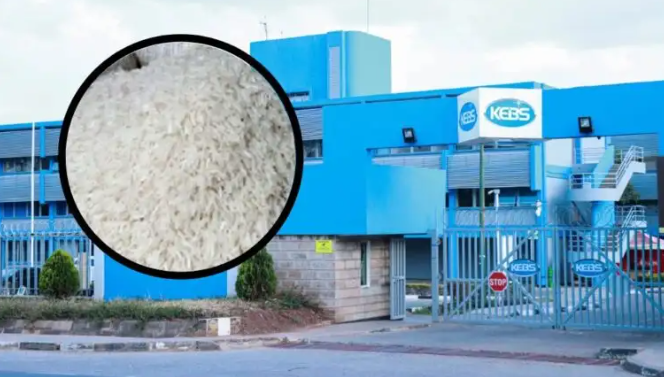The Kenya Bureau of Standards (KEBS) has denied initial concerns that tainted rice may have infiltrated Kenyan markets.In a statement issued on Wednesday, December 11, KEBS stated that the rice claimed to be tainted was analyzed and passed all relevant tests.
“We wish to assure all Kenyans that the rice available in the market is safe and fit for consumption,” KEBS stated.
“The Kenya Bureau of Standards (KEBS) has taken note of the recent media report suggesting that KEBS has not raised an alarm about the quality of rice in the Kenyan market.”
According to KEBS, rice from Pakistan met the required aflatoxin levels, contrary to previous indications.
“The outcome of the testing indicated that the aflatoxin levels were within acceptable limits (0.58 µg/kg against a requirement of 10 µg/kg) and therefore fit for human consumption upon testing,” it added.
Furthermore, the agency disclosed that the rice was permitted to hit the stores with its original diamond mark of quality, showing that it was genuine.
“Diamond mark of quality is granted to products that have met and exceeded the requirements of the Kenyan Standard and therefore assures consumers of high quality and safety,” it added.
KEBS reported that it discovered 452 bags of rice that had infiltrated the market at one of the companies where it was stored.
After holding the 452 bags, the safety department declared that it was currently destroying the rice.
“The 452 bags of rice found at(company name withheld) were seized by KEBS in the interest of consumer safety and subjected to laboratory analysis,” KEBS added.
“The outcome of the analysis confirmed that the rice was not fit for human consumption due to high aflatoxin levels KEBS is in the process of destroying all the 452 bags of nice seized.”
However, the agency stated that when foodstuffs such as rice are stored for an extended period of time, they may deteriorate.
The allegation came less than a day after many media sources claimed that KEBS papers seized on Tuesday revealed how rice considered unfit for human consumption was diverted into the Kenyan market.
According to the allegation, an 83,000-bag shipment of 25kg of rice was carried from Mombasa’s Kilindini port to Nairobi, where it was repackaged and dispersed to several wholesale and retail shops.
Furthermore, when KEBS officials discovered that the rice had entered the market while failing to satisfy the required requirements, they launched a raid but were only able to seize 23,000 kg.













Leave feedback about this